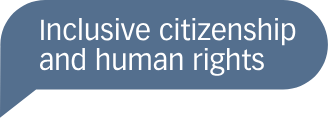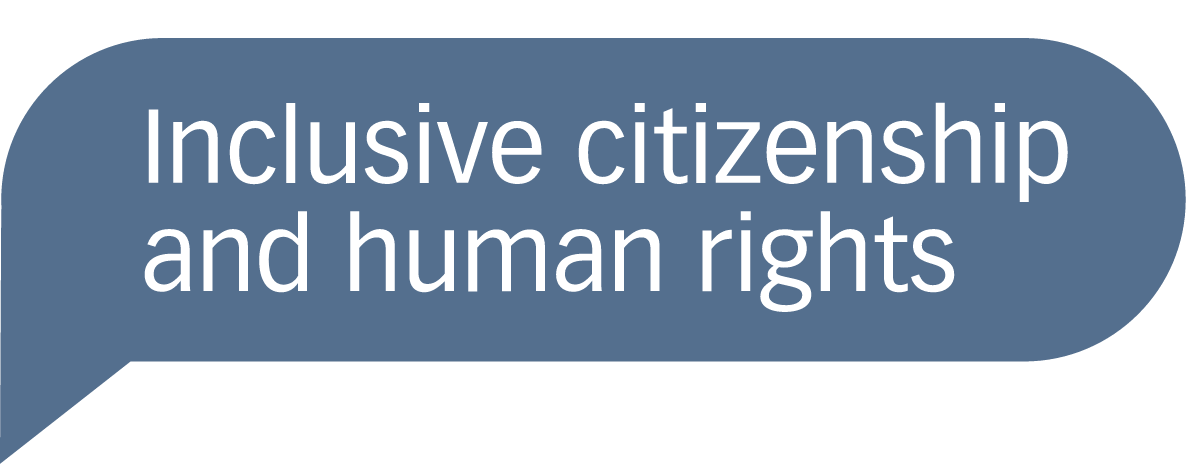
The idea of the nation-state has evolved over centuries, shaped by political change, cultural traditions, and social movements. Originating in Europe after the Peace of Westphalia in 1648, it rested on the notion of a shared identity within defined borders. Today, forces like globalization, migration, and diversity continue to reshape this idea, as societies navigate questions of belonging, recognition, and inclusion.
On this page, we explore how religious identity shapes understandings of belonging and influences the ways citizenship is defined and experienced.
Defining Citizenship
Citizenship refers to the formal relationship between an individual and a state, entailing rights and responsibilities.
Darshana Mitra, co-founder of Parichay and Assistant Professor & Director of the Clinic at NLUIS, India examines the concept of citizenship from multiple perspectives.
Religious & National Identity
Religion has long been central to the formation of national identities, shaping shared languages, traditions, and legal frameworks. In many societies, it continues to influence how nations define themselves and who is seen as belonging. As different religious communities navigate their place within national narratives, these dynamics can foster pluralism and coexistence, or, at times, deepen divisions over identity and inclusion.
Fernand de Varennes – The Role of Religion on National Identity
Protection of Minority rights
The relationship between ethnic, religious, and national identity and citizenship reflects a complex interplay. This dynamic may be understood in two ways with respect to the enjoyment of citizenship.
First, citizenship may be grounded in a civic bond with the state, independent of identity markers such as ethnic and religious identity, or gender, and aligned with human rights obligations. Second, the acquisition, determination, or deprivation of nationality may be conditioned by ethnic and religious identity, resulting in restrictive conceptions of citizenship. This latter approach often marginalizes minority groups within the state and carries profound implications for their right to nationality.
Visit our Human Rights of Minorities page to learn more.
Darshana Mitra – The CAA 2019 & Citizenship Determination in Assam
Explore further here the citizenship determination processes in Assam, India, and their broader implications for Bengali-speaking Muslim communities.
Multiple international instruments protect the right to nationality for minorities, including the ICCPR, ICESCR, CERD, CRC, CAT, CEDAW.
CERD Article 5(d)(iii) explicitly prohibits discrimination in enjoying the right to nationality and affirms principles of equality and non-discrimination.
The UN Declaration on the Rights of Indigenous Peoples (UNDRIP) guarantees the right to nationality (Article 6) and non-discrimination (Article 2).
The UN Declaration on the Rights of Persons Belonging to National or Ethnic, Religious and Linguistic Minorities offers key guidance for protecting minority rights.
The UN Forum on Minority Issues promotes dialogue and adherence to these principles; its 2018 session focused on statelessness as a minority issue.
Narrative approach:
Narratives play a central role in shaping national and group identities, influencing how we see ourselves and others, both historically and today. Developing narrative competence involves the ability to analyse and deconstruct a given narrative. It also includes the capacity to create counter-narratives that challenge dominant assumptions. This process can be a powerful way to reflect on and address biases related to religious diversity.
Click here to explore tools for teaching religious diversity that promote inclusion and challenge stereotypes.
Claudia Lenz – Narrative & National Identity
Visit our topic page on Religious Diversity & Dialogue to explore how education and interfaith dialogue can foster mutual understanding and address hostility toward religious minorities.
Reflective Question:
Are there noticeable changes in the way citizenship and national belonging are described in your country? Do you see religion influencing these discussions?
Related Resources
Find digital tools produced in cooperation with partners and researchers from different regions.
Coverphoto: by Andrew Renneisen/Getty Images



